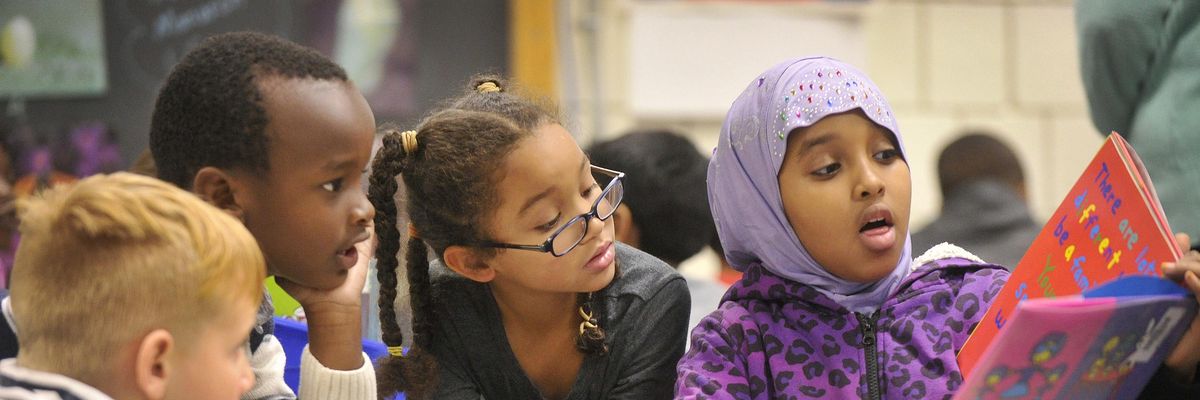More than a thousand children's literature authors on Thursday urged Congress, state lawmakers, and school boards around the U.S. to protect students' right to read and learn by fighting back against the right-wing book-banning frenzy that has stripped hundreds of titles from library shelves nationwide.
"We, the undersigned, authors and illustrators of books for children and teens, condemn the efforts by organized groups to purge books from our nation's schools," states a letter, which was drafted by Christina Soontornvat and signed by 1,300 writers and artists from multiple generations and genres.
"Our concern is not for the books themselves," the letter continues, "but for the children, families, and communities who are caught in the crosshairs of these campaigns."
The letter was read aloud during a House Subcommittee on Civil Rights and Civil Liberties hearing held to "examine the ongoing efforts to prohibit discussion in K-12 classrooms about American history, race, and LGBTQ+ issues, and to punish teachers who violate vague and discriminatory state laws by discussing these topics."
According to the American Library Association, the U.S. was home to 729 attempted bans of 1,597 unique titles in 2021--the highest number of challenges to library, school, and university materials in a 12-month period since the ALA began tracking such efforts more than two decades ago.
In a separate report released last month, PEN America found that U.S. school districts with a combined enrollment of more than two million students successfully banned 1,145 books between July 1, 2021 and March 31, 2022.
"This current wave of book suppression follows hard-won gains made by authors whose voices have long been underrepresented in publishing,"says the new letter. "The current banning efforts are part of a strong and purposeful backlash against books written by BIPOC authors. Books with characters who are LGBTQIA+ have been vehemently targeted and frequently misrepresented."
"When books are removed or flagged as inappropriate, it sends the message that the people in them are somehow inappropriate," the letter continues. "It is a dehumanizing form of erasure. Every reader deserves to see themselves and their families positively represented in the books in their schools."
"These books are important for all children," the letter adds. "Reading stories that reflect the diversity of our world builds empathy and respect for everyone's humanity. At a time when our country is experiencing an alarming rise in hate crimes, we should be searching for ways to increase empathy and compassion at every turn."
The letter comes just one week after the American Federation of Teachers and more than two dozen other organizations joined the ALA's Unite Against Book Bans coalition.
"Libraries are bastions of the First Amendment," says the new letter. "They provide equal access to a wealth of knowledge and ideas for all public school students. When individuals and organizations seek to advance their own political agendas or personal beliefs by censoring books, they infringe upon students' constitutional rights."
Recent polling shows that over two-thirds of voters oppose efforts to remove books from public libraries and school libraries.
Book bans are part of the Republican Party's broader war on public education that continues to sweep the country.
In addition to trying to remove specific titles from schools, colleges, and libraries, GOP lawmakers in 42 states have introduced more than 180 bills since January 2021 that seek to limit the ability of educators and students to discuss gender, racism, and other topics, according to PEN America.
